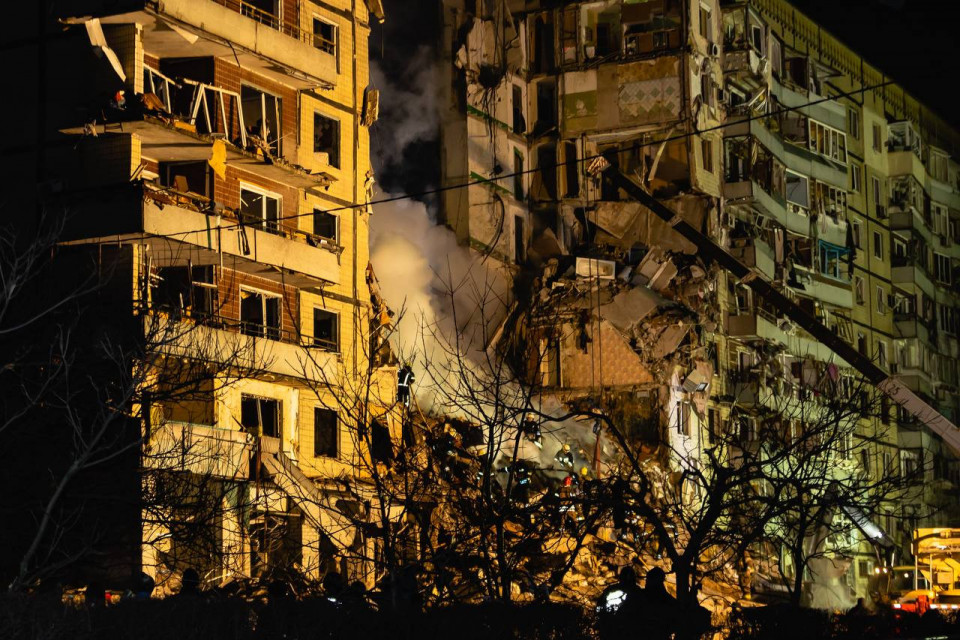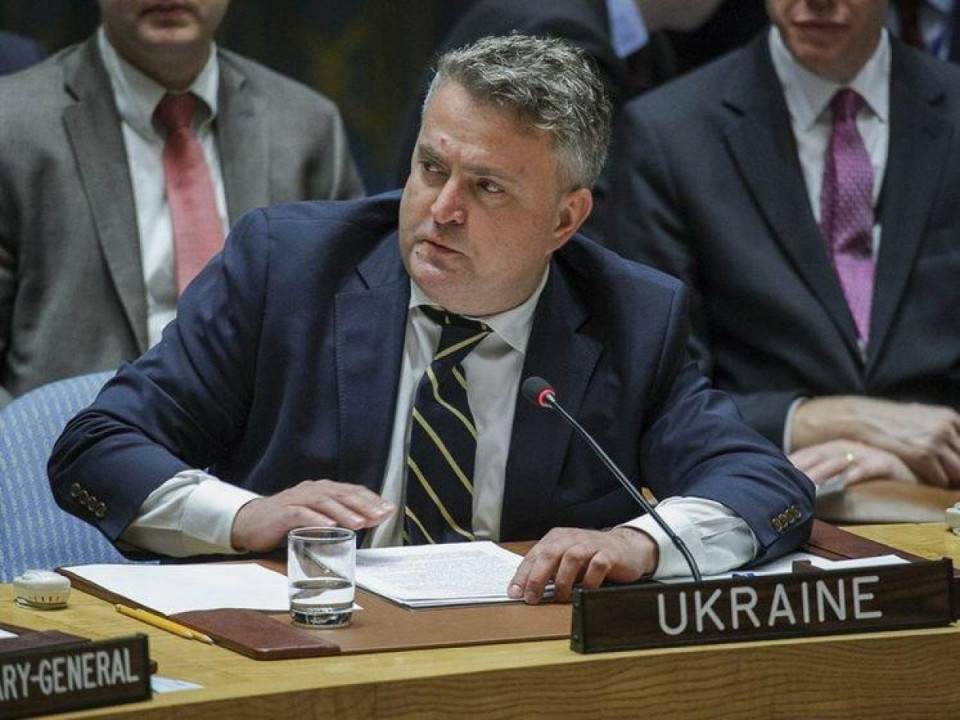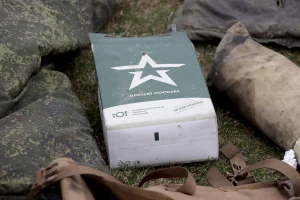
UN Commission identifies perpetrators of war crimes in Ukraine
Russian forces have tortured, sexually assaulted, killed, and imprisoned defenseless Ukrainian civilians, among other war crimes. According to the report of the UN-backed Independent International Commission of Inquiry on Ukraine, systemic human rights violations by Russia may constitute genocide and crimes against humanity
Ukraine’s Euromaidan Press media outlet has analyzed Russia’s war crimes in Ukraine, including those documented by the UN.
Federico Villegas Beltrán, head of the United Nations Human Rights Council (UNHRC), announced the creation of the Independent International Commission of Inquiry on Ukraine in March 2022, following Russia's full-scale invasion. This panel is supposed to look into any alleged violations of international humanitarian law (IHL) and human rights during the Russian war against Ukraine.
The group, which gathers proof of war crimes through victim interviews and forensic analysis, published a report almost a year after the armed aggression started claiming that Russia had perpetrated a variety of war crimes in Ukraine.
“The Commission’s evidence shows that in areas that came under their control, Russian authorities have committed wilful killings of civilians or persons not involved in fighting (hors de combat), which are war crimes and violations of the right to life,” the UN Commission of Inquiry on Ukraine noted.
According to Erik Møse, the chair of the Commission of Inquiry and a former judge at the International Criminal Tribunal for Rwanda (ICTR), there is a list of people who must face justice for war crimes committed in Ukraine.
Russian forces conducted 'denazification sessions' and beatings of Ukrainian civilians and POWs
In the Chernihiv, Donetsk, Kharkiv, Kherson, Kyiv, Sumy, and Zaporizhzhia regions, the Commission has discovered several instances of brutal treatment by the Russian occupation authorities.
According to the allegation, residents and POWs held captive by the invading Russian forces were subjected to 'denazification sessions' and 'calls to Putin', during which they were brutally beaten and electrocuted with a military phone.
According to the Commission, the military and ex-servicemen, their family members, local officials, law enforcement officers, workers at the Zaporizhzhia Nuclear Power Plant (ZNPP), and pro-Ukrainian citizens were subjected to exceptionally harsh torture.
Russian soldiers tied their victims' hands and legs and blindfolded them with hoodies or tape during protracted interrogations at prison facilities. Those who survived the gas chambers remembered the Russian troops calling them 'Nazis', 'fascists', and 'terrorists'. The Russian forces used cruel tactics against Ukrainian citizens in the early stages of the conflict, including sexual assault, beatings with rifle butts or batons, and planned executions.
According to the Commission report, even greater torture techniques were applied in locations under extended Russian authority and in detention facilities that were more long-term.
“One such method was electrocution with a military phone called ‘Tapik’ connected to an electricity cable with clips applied on feet, fingers, or men’s genitals. The perpetrators called this a “call to Lenin” or a “call to Putin. Other methods included hanging detainees to the ceiling with hands tied, called “parrot position”, strangling with cables, suffocating with plastic bags or gas masks, rape, and other sexual violence,” the report says.
Human rights investigators made public the story of a former Russian prisoner who was beaten as 'punishment for speaking Ukrainian' and for 'failing to recall the lyrics of the anthem of Russia.' A female survivor claims that after being beaten several times, she occasionally passed out, but the attackers resumed the assault as soon as she regained consciousness.
The Commission has also documented instances of sexual abuse against women, men, and children, the victims’ age ranged from from 4 to 82. The majority of casualties were women who were home alone when the Russian invaders entered.
“In one incident, the victim was pregnant and begged, in vain, the soldiers to spare her; she had a miscarriage a few days later. Perpetrators also, in some instances, executed or tortured husbands and other male relatives,” the UN reported.

Shots to the head are the most common cause of death for Ukrainian POWs and civilians
Ukraine’s Permanent Representative to the UN Sergiy Kyslytsya cited the Commission’s report stating, “Family members, including children, were sometimes forced to watch perpetrators rape their loved ones.”
Additionally, according to Ukraine's UN representative, the country's nuclear power sector lost 44% of its capacity as a result of Russia's massive missile terrorism during the winter.
“Russia’s “scorched earth” policy has led to the destruction of at least 59,000 residential buildings, 436 hospitals, and over 2,200 educational institutions,” Kyslytsya said.
Russian aggression against Ukraine has polluted almost 174,000 km2, or 30% of its terrain, dealing a serious blow to the world's top agricultural commodity producer.
Kyslytsya also recalled that Russian air bombs destroyed Mariupol's Drama Theater, a shelter which was clearly marked with the word "Children."
“We still do not know the exact number of victims, and Russia has done everything possible to cover up its crime as soon as Mariupol was occupied,” he added.

Is Russia committing genocide?
The investigation had identified probable offenders who perpetrated atrocities in Ukraine, according to Erik Møse, chair of the International UN Commission, who made the announcement during a news conference on the annual report in Geneva. The list of war criminals' names will be “submitted to the relevant authorities in this issue.”
Møse explained that the Commission was undertaking a thorough inquiry to establush the facts of the situation and gather evidence in answer to a query concerning the potential involvement of Russian political and military personnel in war crimes perpetrated in Ukraine.
According to Euronews, the UN assessment on the killing, torturing, and sexual assault of Ukrainian citizens found no concrete proof that these actions were motivated by genocidal intent or could be categorically categorized as crimes against humanity. Nevertheless, the report concluded that more investigation is necessary.
“We have not found that there has been a genocide within Ukraine,” Erik Mose, the head of the investigation team, told a press conference in Geneva.
However, “we have noted that there are some aspects which may raise questions with respect to that crime... but we have not yet put in any conclusion here,” he said.
Asked about specific accusations of genocide, including the forced transfer of Ukrainian children to areas under Russian control, Mose said, “We are absolutely aware of these possibilities, and we will pursue this if our mandate is being prolonged.”
Yevheniya Kravchuk, the vice chair of the Verkhovna Rada Committee on Humanitarian and Information Policy, issued a warning to the world community against falling for Russian propaganda denials of the Ukrainian genocide while the probe is still ongoing.
The Commission's objective in Ukraine was to look into war crimes rather than look for proof of genocide. The world's highest courts would use the recognized cases as the foundation for additional hearings. Kravchuk stated that Ukraine is preparing its own inquiry into the crimes of genocide, which will call for modifications to the UN Commission.
“Ukrainian Army stands its ground while Russian military invades”
The majority of the Commission's findings was devoted to accusations against Russia, despite the fact that the Ukrainian army was also implicated in a small number of indiscriminate attacks that included the torture of prisoners of war and the use of illegal cluster munitions.
In reaction to the UN report, Ukraine's Ministry of Foreign Affairs announced on March 24 that it will take into account the conclusions and suggestions of the Independent International Commission of Inquiry about the country's protection of human rights.
The ministry stated emphatically that it finds it unacceptable when the blame is placed on the victim.
“Ukraine has the right to defend itself,” it added in a statement.
According to Yuriy Belousov, the director of the Office of the Prosecutor General's Department for Combating Crimes in the Context of Armed Conflict, the Russian military is suspected of committing 71,147 military crimes in Ukraine.
Belousov says that the majority of war crimes have been committed by using rockets and missiles to target civilian facilities. Drones and 3D scanners that produce models of demolished homes and hospitals are currently being used by Ukraine's investigation teams to recreate Russian strikes and present evidence in international courts.
- News













































